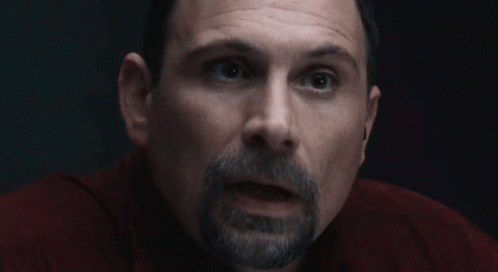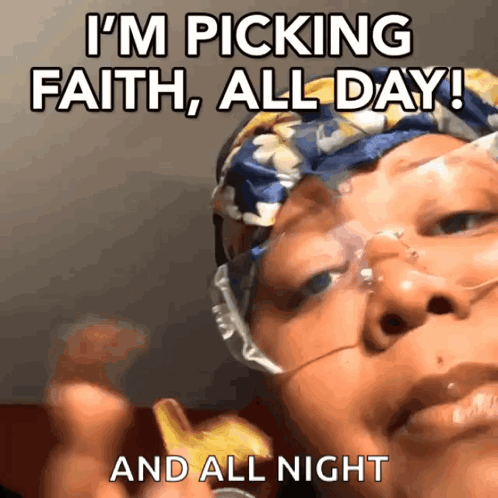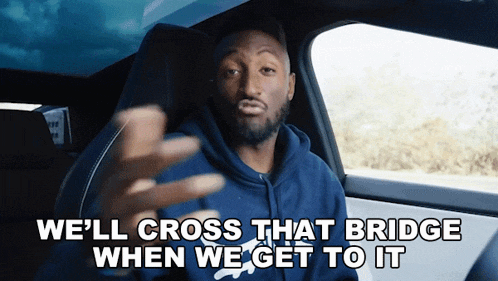Moving is always stressful, but imagine relocating your entire extended family—at age 130—to a foreign country after decades of believing your favorite son was dead! Genesis 46 chronicles Jacob's extraordinary migration to Egypt, beginning with a divine reassurance at Beersheba and culminating in a tearful reunion with Joseph.
Sandwiched between is a detailed genealogy listing 70 family members who made this momentous journey. This isn't just an ancient immigration story—it's a profound meditation on transitions, divine guidance at life's crossroads, and how God fulfills promises even when He leads us into unexpected territory. The chapter shows us what faith looks like when caught between the familiar past and an uncertain future.
The Choreography of Transition and Promise
Genesis 46 moves with the deliberate pace of a major life transition. "So Jacob set out with all he had, and when he reached Beersheba, he offered sacrifices to the God of his father Isaac." This act of worship at the boundary marks the beginning of everything that follows. The pattern is revealing:
Threshold encountered → Divine reassurance sought → Promise received → Journey undertaken → Reunion experienced
This isn't just narrative progression – it's exposing something profound about faith transitions. Significant spiritual journeys often begin with worship, require divine reassurance, and culminate in experiences that make the uncomfortable journey worthwhile. Each scene builds upon the previous one, creating an intricate picture of how God guides His people through major life changes.
Breaking Down the Chapter
Verses 1-4: Jacob's worship at Beersheba and God's night vision
Verses 5-7: The practical details of the family's departure
Verses 8-27: Detailed genealogy of Jacob's family entering Egypt
Verses 28-30: The emotional reunion between Jacob and Joseph
Verses 31-34: Joseph's strategic plans for the family's settlement
But here's what's fascinating – notice the threshold markers? The chapter begins with Jacob at Beersheba (the southern boundary of Canaan) and ends with preparations to settle in Goshen (the boundary region of Egypt). It moves from divine reassurance to human reunion, from leaving the land of promise to entering the land of provision, from genealogical identity to geographical displacement.
The Human Element: Jacob's Final Act of Faith
When Jacob pauses to worship at Beersheba, we witness one of the patriarch's final and most poignant acts of faith. "Do not be afraid to go down to Egypt, for I will make you into a great nation there. I will go down to Egypt with you" (Genesis 46:3-4).
This is revolutionary. The same man who had spent his life in and around the Promised Land now receives divine permission—even encouragement—to leave it. Jacob has evolved from viewing Canaan as the exclusive location of blessing to understanding that God's presence and promise transcend geography. At 130 years old, he embarks on perhaps his greatest journey of faith.
Christ as our Bridge
Genesis 46 powerfully portrays Christ as our bridge between worlds. Jacob stood at Beersheba, the edge of the Promised Land, fearful about leaving the territory of promise for the unknown territory of Egypt. God's response—"I will go down to Egypt with you"—foreshadows Immanuel, "God with us," who bridges divine and human realms.
Just as God promised to bring Jacob back up from Egypt (though Jacob himself would die there), Christ promises to bring us into our true homeland though we may not see it in this lifetime. The genealogical list of 70 descendants who entered Egypt prefigures how Christ, from one particular bloodline, would create a vast family of faith from every nation.
Most significantly, Jacob's example of worship at the threshold reminds us that Christ is our mediator at every major life transition. Jacob sacrificed at Beersheba before proceeding into unknown territory—just as we come to Christ at our life's crossroads, seeking guidance, reassurance, and presence.
In Christ, we never truly leave the Promised Land because He himself becomes our territory of promise. Like Jacob discovering that God's covenant wasn't limited to Canaan, we find in Christ that divine presence transcends every boundary and accompanies us into every Egypt we must enter.
WALK THRU TRIVIA CHALLENGE
Question: According to the genealogy in Genesis 46, how many direct descendants of Jacob came to Egypt with him?
A) 12
B) 66
C) 70
D) 75
Check your answer below!
Answer: B) 66
Genesis 46:26 says, "All those who went to Egypt with Jacob—those who were his direct descendants, not counting his sons' wives—numbered sixty-six persons." The total of 70 mentioned in verse 27 includes Jacob himself, Joseph, and Joseph's two sons who were already in Egypt.
THE FAITH LESSON OF BEERSHEBA
Jacob's stop at Beersheba wasn't just a convenient rest point—it was spiritually significant. Beersheba represented the southern boundary of the Promised Land and was rich with family history. Abraham had planted a tamarisk tree and called on God there (Genesis 21:33). Isaac had built an altar there after God appeared to him (Genesis 26:24-25).
By stopping to offer sacrifices at this threshold place, Jacob demonstrates profound spiritual wisdom. He pauses at the boundary between his past and his future to seek divine guidance and reassurance.
This isn't a minor detail—it's a spiritual revelation! Sometimes the most important moment in a journey isn't the arrival but the threshold, the boundary place where we pause to worship and listen before proceeding into unfamiliar territory.
Here's the transformative truth: Our transitions deserve their own sacred spaces. Before rushing from the familiar into the unknown, wisdom calls us to create Beersheba moments—threshold times of worship, reflection, and divine listening. Jacob doesn't just march into Egypt based on Joseph's invitation; he pauses to ensure God's presence will accompany this dramatic life change.
The divine response—"I am God, the God of your father...do not be afraid"—reminds us that threshold moments often trigger fear, making them precisely when we most need to seek God's reassurance.
GENEALOGY: MORE THAN JUST NAMES
The central portion of Genesis 46 contains what might seem like a dry genealogical list. But in the ancient world, these names carried profound meaning. They represented not just individuals but identity, legacy, and divine promise.
By meticulously recording the 70 persons who entered Egypt, the text emphasizes several key truths:
God's promise to Abraham of countless descendants was visibly unfolding
Israel entered Egypt as a family but would leave as a nation
Each person named was part of a divine storyline bigger than themselves
The specific number 70 also carries significance, representing completeness and fullness in Hebrew thought. The 70 who entered Egypt become a microcosm of all humanity, suggesting that God's redemptive work through Israel would eventually extend to all peoples.
Your Turn to Walk Through
As you read Genesis 46 again (and I encourage you to do so), consider:
What "Beersheba moments" have you experienced—threshold times when you paused for divine guidance before a major transition?
Where do you see yourself in this story—fearful at the boundary like Jacob, or reuniting with loved ones like Joseph?
What promise might God be asking you to trust even as He leads you into unexpected territory?
Remember, this isn't just an ancient migration story—it's a pattern of how God guides His people through major transitions, offering both His presence and His promises as we journey between worlds.
WALKTHRU WITH JESUS
Genesis 46 speaks directly to anyone facing major life transitions. Like Jacob, we all encounter moments when God's path leads us away from the familiar and into the unknown. The promised land of our comfortable past gives way to the Egypt of an uncertain future.
Giving your life to Jesus doesn't exempt you from these threshold moments—it transforms how you navigate them. It means discovering, as Jacob did, that God's presence isn't confined to familiar territory but accompanies you into every new season. It means learning to create sacred pauses at life's boundaries, offering worship before taking your next steps.
The question isn't whether you'll face significant transitions—we all do. The question is whether you'll rush through them or, like Jacob, pause at Beersheba to seek divine reassurance and direction before proceeding.









